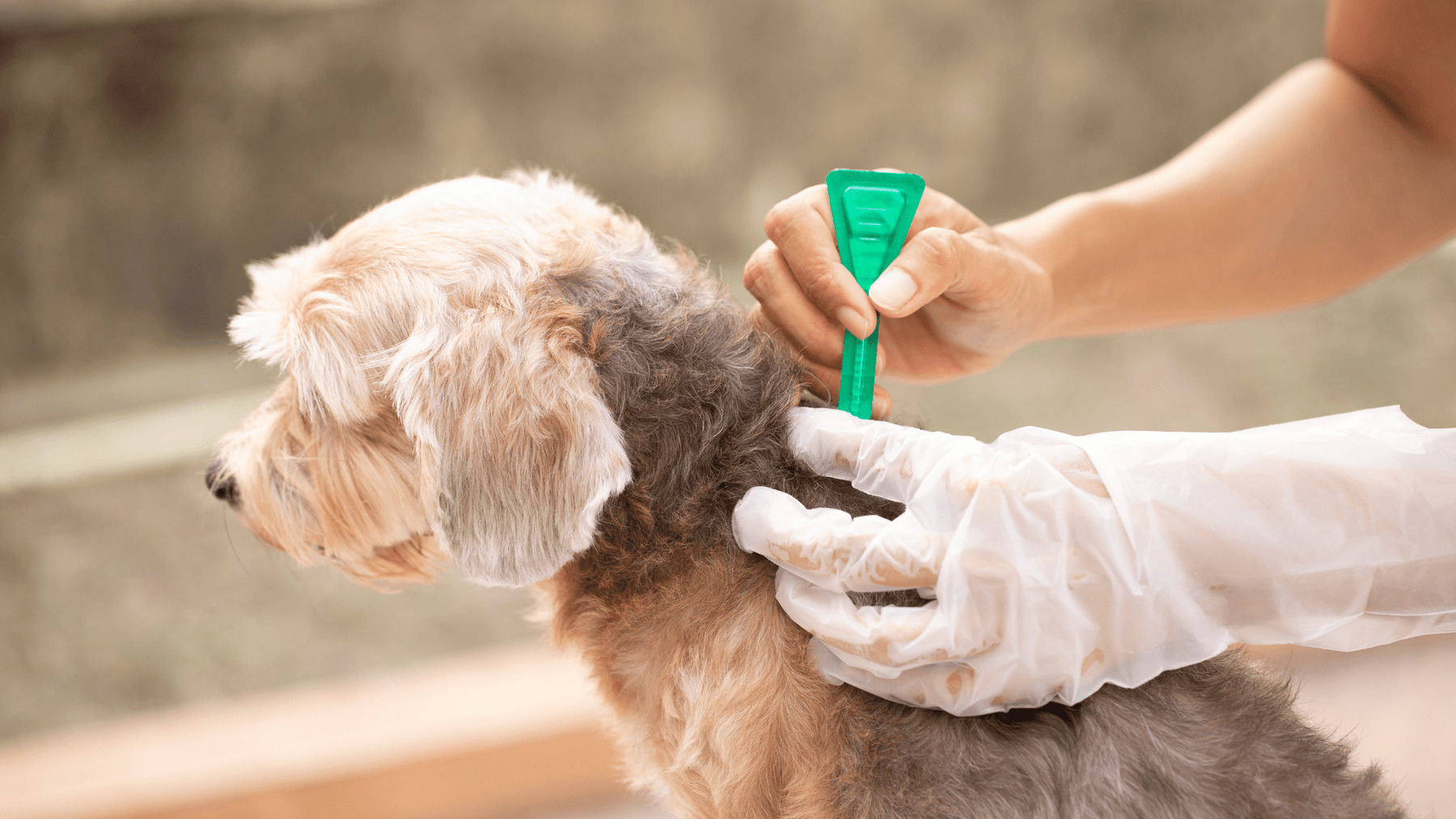
Dangers Of Chemical Flea Treatments
For pet owners, the battle against fleas is a perennial struggle. These tiny, blood-sucking pests can make life miserable for both our furry friends and us. In the quest for a flea-free home, many turn to chemical flea treatments, considering them a quick and effective solution. However, what often goes unnoticed are the potential dangers associated with these seemingly harmless products. In this blog, we'll explore the dark side of chemical flea treatments and why a more cautious approach may be necessary for the well-being of our dogs and cats.

The Toxic Cocktail: Understanding Chemical Flea Ingredients
Before delving into the dangers, it's crucial to decipher the toxic cocktail that makes up most chemical flea treatments. Pyrethrins, pyrethroids, and other synthetic chemicals are often the main culprits. While these agents effectively eliminate fleas, they can also wreak havoc on your dog or cat's nervous system, leading to a myriad of health issues.
Side effects of chemical flea treatments:
- Skin irritations
- Allergic reactions
- Vomiting
- Shaking / trembling
- Drooling / vomiting
- Respiratory / breathing problems
- Diarrhea
- Neurological and psychological effects
- Organ damage
Please contact your vet if symptoms appear after chemical flea treatment application.
Browse safe, natural and non-toxic flea treatments >
Risk of Flea Treatment Overdose
Misuse or overapplication of chemical flea treatments can lead to accidental overdoses in pets. Pet owners, unaware of the correct dosage or frequency, may inadvertently expose their pets to higher concentrations of these toxic substances. Overdoses can result in symptoms like vomiting, seizures, and, in extreme cases, even death.
Health Risks of Chemical Flea Treatment to Humans
The dangers of chemical flea treatments extend beyond our pets. Humans, especially children, can be exposed to these toxic substances through contact with treated pets or contaminated surfaces. Research has linked prolonged exposure to certain flea treatment chemicals with an increased risk of respiratory issues, skin irritation, and other health concerns in humans.
Chemical Flea Treatment Resistance
Fleas, like many other pests, have the ability to develop resistance to chemicals over time. Frequent use of the same chemical treatments can lead to a population of fleas that are no longer affected by these substances. This not only renders the treatments ineffective but also forces pet owners to seek stronger, potentially more harmful solutions in a futile attempt to control the infestation.
Environmental Impact of Chemical Flea Treatment
Chemical flea treatments don't just disappear after application. Residues from these products can linger in the environment, posing a threat to wildlife and ecosystems. Runoff from treated lawns, for example, can contaminate water sources and harm aquatic life. As responsible stewards of the planet, it's crucial to consider the broader environmental impact of the products we use.
Safer Flea Treatment Alternatives
There are safer alternatives to chemical flea treatments. Natural remedies, such as herbal shampoos, natural sprays, diatomaceous earth, and natural itch remedies offer effective flea control without the same level of risk. Regular grooming, vacuuming, and maintaining a clean living environment also play a crucial role in preventing and managing flea infestations. Use a natural insect-repellent pet spray that can be sprayed on bedding and even on your own clothing!
Conclusion
While the temptation to eradicate fleas quickly is understandable, the potential dangers associated with chemical flea treatments cannot be ignored. As pet owners, it's essential to prioritise the health and well-being of our furry companions by exploring alternative, less toxic flea control methods. Natural remedies, frequent grooming, and regular cleaning are effective strategies that can help keep fleas at bay without exposing our pets and our homes to unnecessary risks. In the pursuit of a flea-free environment, let's not compromise the safety of our beloved pets or the health of our families.
Featured products:
Related Articles:
- Should You Shave Your Pet's Coat In Summer?
- Quercetin for Pet's Itchy Skin & Allergies: A Natural Solution
- 7 Natural Home Remedies to Deworm Your Dog
If you have any health-related questions, please contact us or leave a comment below for FREE advice. We always love hearing from you!


Leave a comment